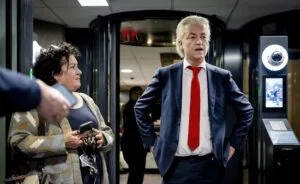Brussels – The day has come: the polls for the 2024 European elections opened today (June 6) in the Netherlands, the first among the 27 European Union member states to call voters to the polls. Three more election days will follow, until June 9, when all 373 million EU voters will have a chance to express their choice for the composition of the new European Parliament. Up for grabs are 720 seats for as many MEPs in the 10th legislature, which will also be the first in history in which the United Kingdom will not participate.
From 7:30 a.m. until 9 p.m. today, the polls are open in the Netherlands, the only one among the 27 to vote (only) on June 6 for the European elections. While some citizens – abroad and at home – have already been casting their preference for days or weeks, they will be followed tomorrow (June 7) by the Czech Republic (also on June 8) and Ireland, Saturday (June 8), by Italy (also on June 9), Latvia, Malta and Slovakia, and followed on Sunday (June 9) by all other member states. The official results will be released together on Sunday night, starting at 11:00 p.m., when the last polling stations in Italy close (the first projection of the new Parliament based on national exit polls is expected around 8:30 p.m.).

The focus today is all on the choices of Dutch voters, which – as in all member countries – also have national significance. After elections in the fall of 2023, which will soon lead to a right-wing government in the Netherlands, the far-right Eurosceptic party PVV (Party for Freedom) of Geert Wilders has continued to grow in the polls and now stands at around 30 percent. In the 2024 European elections, for the first time in history, the Dutch far-right could bring nearly a third of the total 31 MEPs to Brussels, swelling the ranks of either the Identity and Democracy group or – a very complex case – a single right-wing formation with the European Conservatives and Reformists.
At the close of the election campaign yesterday (June 5), Wilders opened to the proposal of the de facto leader of France’s far-right Rassemblement National, Marine Le Pen, to the Italian Premier and President of the European Conservatives and Reformists Party, Giorgia Meloni. “I have a lot of respect for both Salvini [leader of the League, member of the Identity and Democracy Party, ed] and Meloni. If it were possible to form a larger group, I would be thrilled to join them,” the Dutch far-right leader said in The Hague about the mega-group in the EU Parliament with Rassemblement National, Fratelli d’Italia, Lega, Vox, Law and Justice, and Fidesz, which would leave room for a possible new parliamentary line-up even more shifted to the far right.
English version by the Translation Service of Withub









